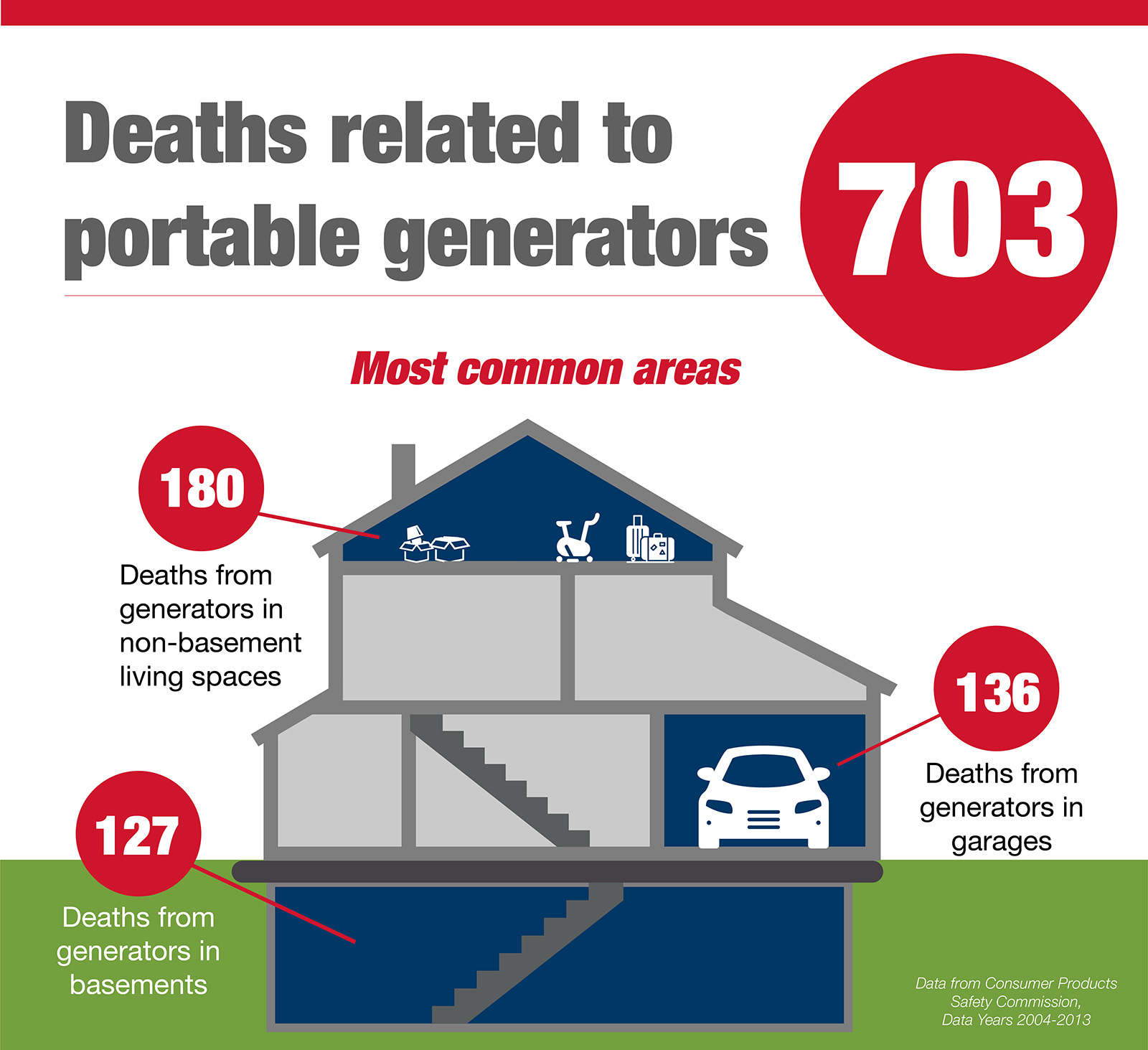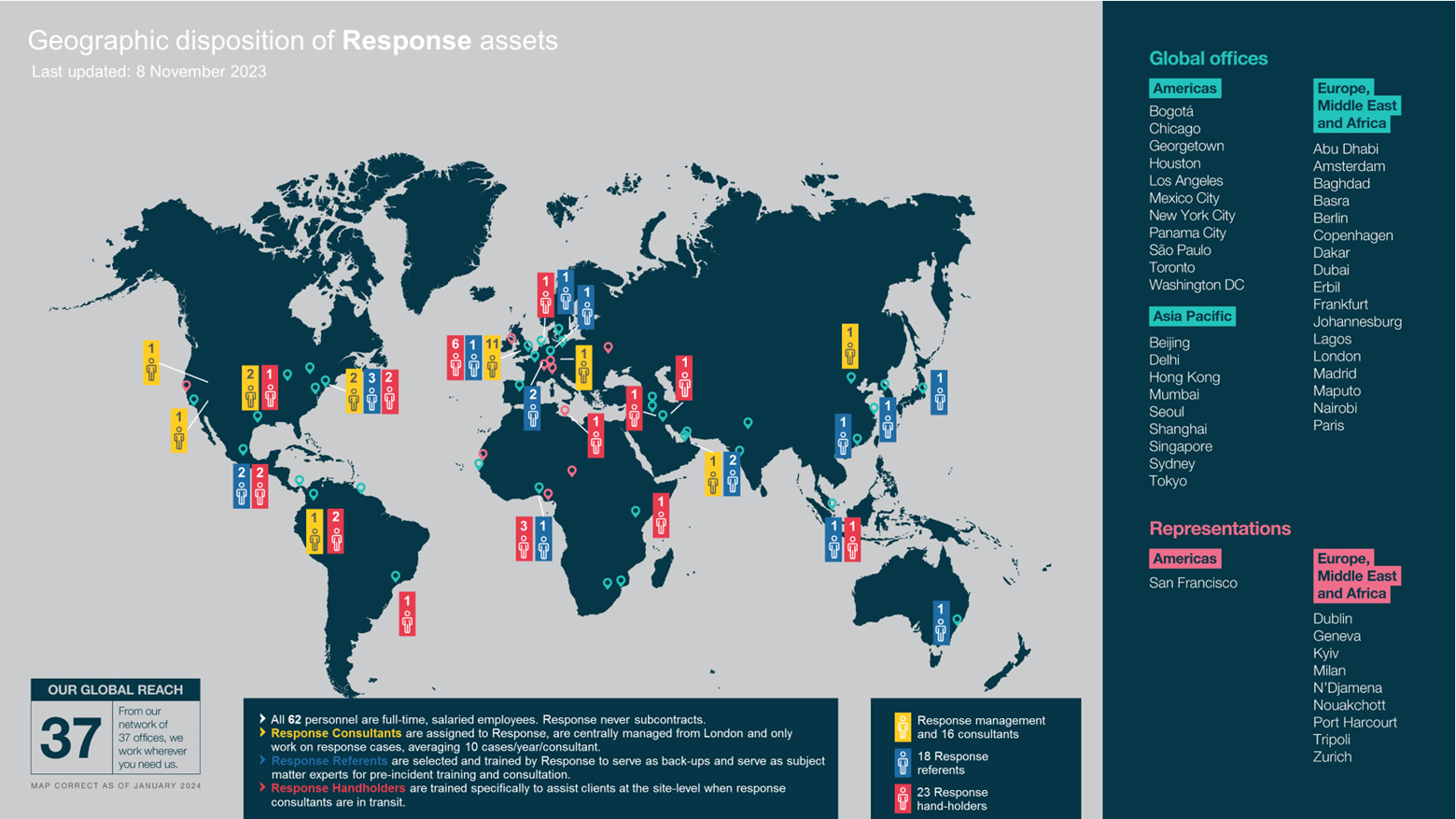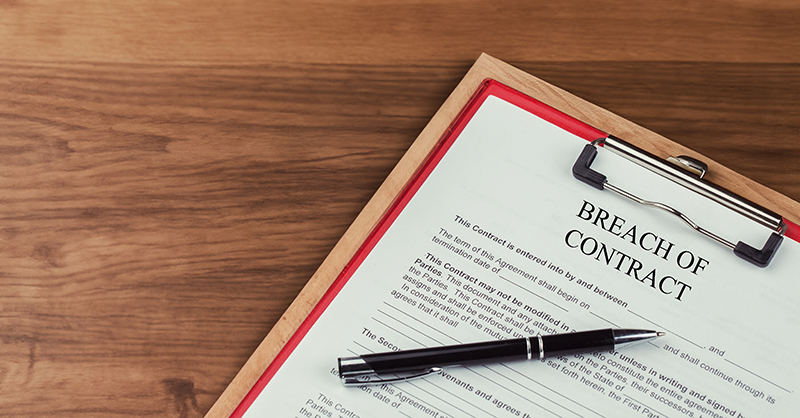Portable Generator Safety

In the event of a power outage, a portable generator may be your only option to receive power. While these devices are both convenient and necessary, portable generators can be dangerous if used incorrectly. The following outlines specific hazards and provides help to ensure that you safely use this equipment.
Prevent Shock and Electrocution
The electricity created by generators is just as hazardous as normal utility-supplied electricity. There are additional potential hazards that could be caused by human error and incorrect use. Generator users often bypass the safety devices built into the electrical systems, such as circuit breakers. Take these precautions to reduce shock and electrocution hazards:
- Never attach a generator directly to the electrical system of a structure, such as a home, office or trailer, unless a qualified electrician has properly installed the generator with a transfer switch. Attaching a generator directly to a building electrical system without a properly installed transfer switch can energize wiring systems for great distances. This creates electrocution risk for utility workers and others in the area.
- Always plug electrical appliances directly into the generator using the manufacturer’s supplied cords or extension cords that are grounded (3-pronged). Inspect the cords to make sure they are fully intact and not damaged. Never use frayed or damaged extension cords, and ensure cords are appropriately rated in watts or amps for the intended use. Do not use underrated cords—replace them with appropriately rated cords that use heavier-gauge wires. Do not overload a generator. Doing so can lead to overheating, which can create a fire hazard.
- Use ground fault circuit interrupters (GFCIs), especially where electrical equipment is used in or near wet or damp locations. GFCIs shut off power when an electrical current is detected outside normal paths to protect against electrocution. Regardless of GFCI use, electrical equipment used in wet and damp locations must be listed and approved for those conditions.
- Make sure a generator is properly grounded and the grounding connections are tight. Consult the manufacturer’s instructions for proper grounding methods.
- Keep the generator dry. Do not use it in the rain or in wet conditions. If needed, protect a generator with a canopy. Never manipulate a generator’s electrical components if you are wet or standing in water.
- Do not use electrical equipment that has been submerged in water. Equipment must be thoroughly dried out and properly evaluated before using. Stop using and power off any electrical equipment that emits strange odors or smoke.

Unfortunately, hundreds die annually from running a portable generator in their home. If you wouldn’t leave your car running for a long period of time in your house or garage, don’t run a generator there either.
Avoid Carbon Monoxide Poisoning
Carbon monoxide (CO) is a colorless, odorless, toxic gas. Many people have died from CO poisoning because their generator was not adequately ventilated.
- Never use a generator indoors or in enclosed spaces, such as garages, crawl spaces and basements. Open windows and doors may NOT prevent CO from building up when a generator is located in an enclosed space.
- Make sure a generator has three to four feet of clear space on all sides and above it to ensure adequate ventilation.
- Do not use a generator outdoors if its placement near doors, windows or vents could allow CO to enter and build up in enclosed spaces.
- If you or others show symptoms of CO poisoning, such as dizziness, headaches, nausea or tiredness, get to fresh air immediately and seek medical attention. Do not re-enter the area until it is determined to be safe by trained and properly equipped personnel.
Limit Fire Hazards
Generators become hot while running and remain hot for long periods after they are stopped. Generator fuels, including gasoline and kerosene, can ignite when spilled on hot engine parts.
- Before refueling, shut down the generator and allow it to cool completely.
- Store and transport gasoline and other generator fuels in approved containers that are properly designed and marked for their contents.
- Keep fuel containers away from flame-producing and heat-generating devices, such as the generator itself, water heaters, cigarettes, lighters and matches. Do not smoke around fuel containers. Escaping vapors or vapors from spilled materials can travel long distances to ignition sources. Store fuels away from living areas.
Protect Against Hearing Loss
Generator engines vibrate and create noise. Excessive noise and vibration may cause hearing loss and fatigue, which can affect job performance.
- Keep portable generators as far away as possible from work areas and gathering spaces.
- Wear hearing protection.
Information for this Safety Topic was provided by The Occupational Safety and Health Administration.














